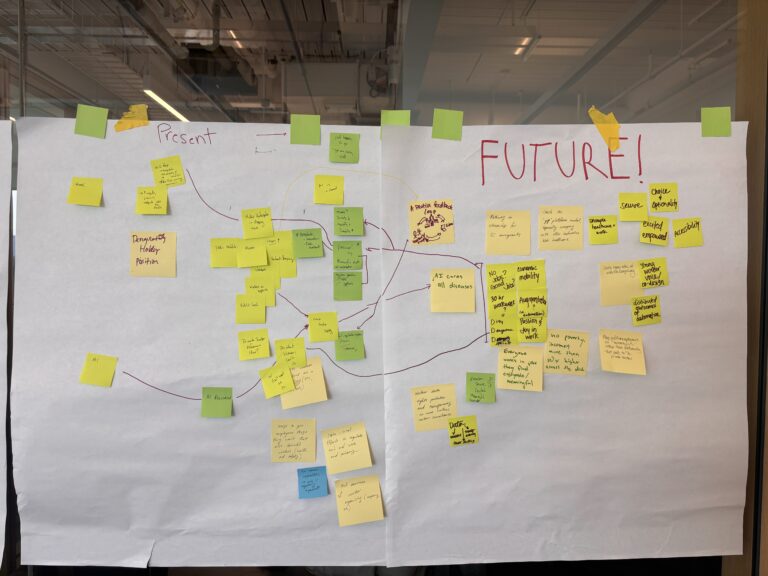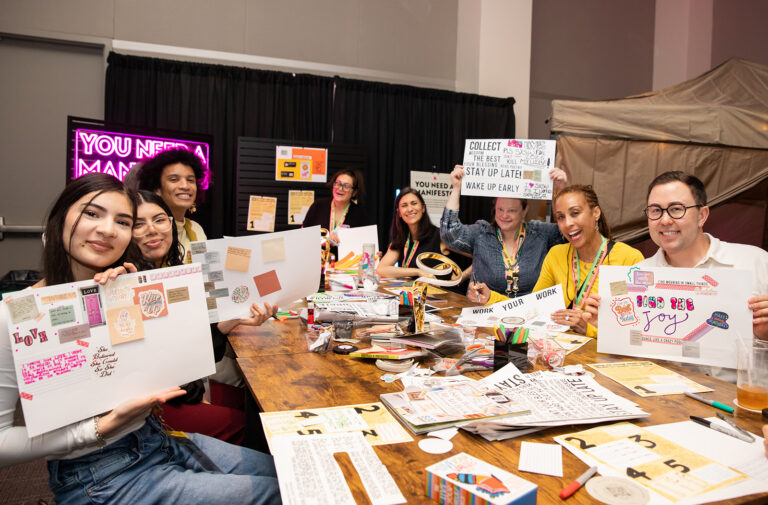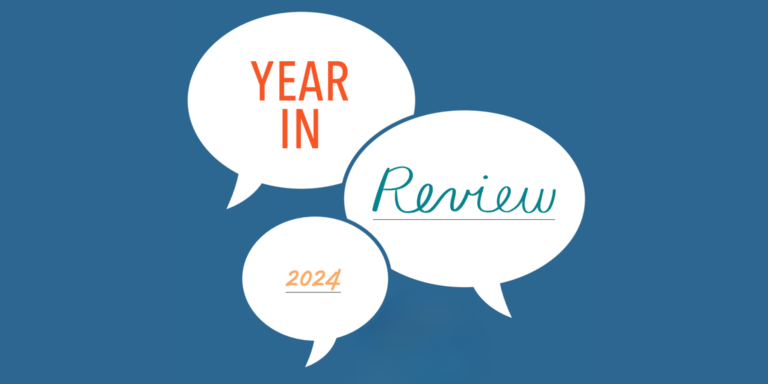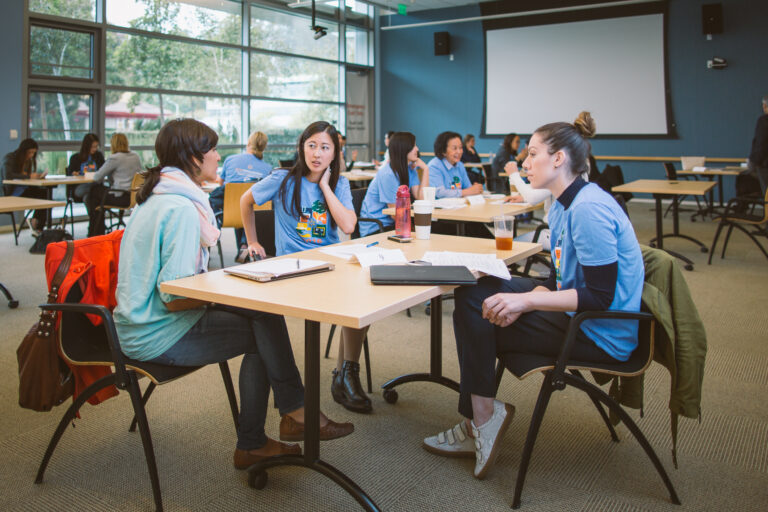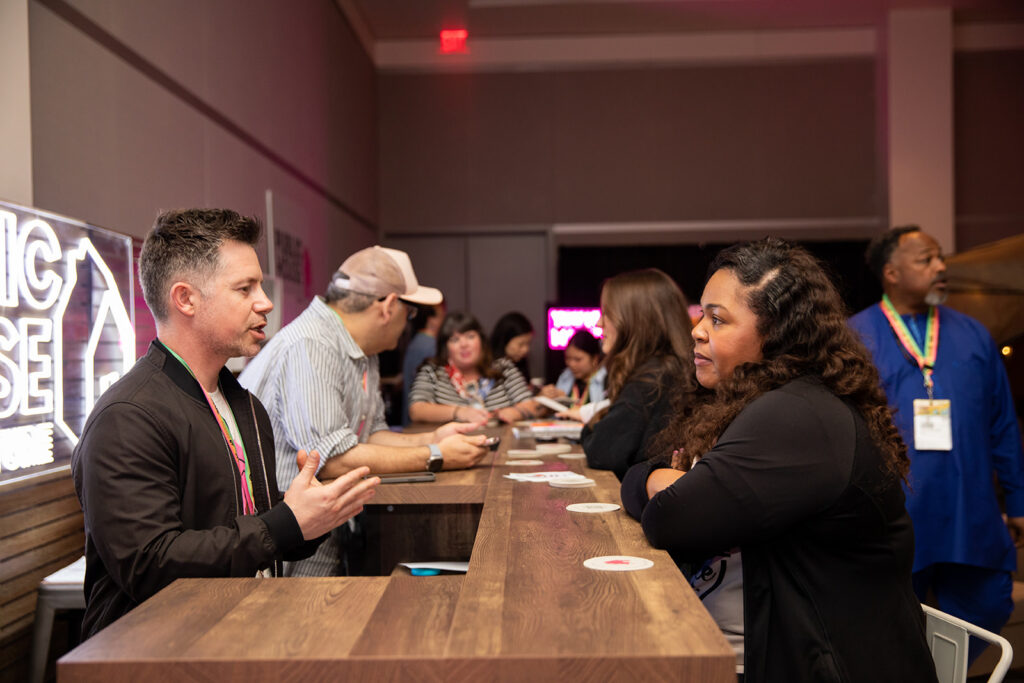
Dear Friends and Colleagues,
As usual, I have questions.
In a year marked by significant shifts in our political landscape, technological acceleration, and social upheaval, questions have become my compass. They’ve given me a guide to return to when so much feels upended, helping to chart new paths forward when the way ahead is unclear.
At Siegel Family Endowment, we’ve spent the first half of 2025 contending with profound uncertainty—not as a problem to solve, but as a condition to navigate with intention, curiosity, and collective wisdom. A bit past the midway point in the year, I’d like to share three questions that have shaped our thinking in the hope that they might resonate with your own.
How do we make the best decisions amidst so much ambiguity?
Forces swirling around us feel monumental. Mass layoffs across sectors, organizational hierarchies flattening as roles disappear, and the looming specter of tariffs reshaping global economic relationships, to name a few. Research institutions—engines of knowledge creation—are in crisis. The uncertain future of the federal government’s role in K-12 education is unsettling. Some days, I wonder (as I am sure many of you do): how the heck are we supposed to find a way through all of this?
Working in philanthropy gives me the privilege of zooming out to look across sectors, disciplines, and communities, and noticing patterns that can be harder to see up close. I’ve come to understand that even in the midst of chaos, we are not limited to simply being reactive… and we can’t afford to be. While we cannot control the pace of change or the uncertainty it brings, we can strengthen our ability to make rational decisions in the face of ambiguity. We can practice responding thoughtfully, resisting strategically, and building toward something better even when we can’t see the full picture.
This belief in intentional, adaptive leadership drives us toward supporting organizations that build those very capacities, such as the Stanford d.School and Cornell Tech’s PiTech Initiative. Both institutions have done great work informing the next generation of tech and design practitioners by engaging with them on issues that impact communities beyond academia, and are poised to grow their impact through new and enhanced endeavors in these spaces.
How do we imagine better futures, however improbable?
The first half of this year has taken the team far from our usual desks and familiar spaces into conversations spanning continents. We’ve traveled far afield to understand how the challenges we face at home connect to global patterns and possibilities.
In Europe, we explored how information serves as the foundation of democratic society, unpacking how AI is impacting civic discourse and social trust together with partners from Aspen Digital and the Thomson Reuters Foundation. During the AI Action Summit, we focused on how to better align philanthropic efforts to promote just tech futures and amplify the voices of young people at the Global Forum on AI and Children with Common Sense Media. In Asia, during the Asia Leadership Conference, we found opportunities to engage with different paradigms for responsible technology development, learning from approaches to leadership and innovation that prioritize community well-being alongside economic growth.
We’re planning even more exploration in the second half of the year: examining information ecosystems in Latin America, investigating trust-building initiatives in London, exploring practices of “unlearning” in Barcelona, uncovering the possibilities of AI in rural America, and diving into the future of education in our own backyard of NYC. We worked with Roadtrip Nation to fuel a cross-country journey to explore how technology can be used for good in the new series Tech for Us, which can be viewed here and on PBS.
Each of these investigations feeds into our broader conviction that we don’t have to accept the future being sold to us by any dominant force. That is the belief underpinning our second annual convening for the public interest tech community this September. Tech Together 2025: Unlocking Improbably Good Futures, will focus on foresight, collective action, and strategic narrative development. We’re continuing this annual convergence of philanthropy and mission-aligned investors as part of our effort to make the Public Interest Technology and AI field stronger and more aligned. When we align on shared values and vision, we don’t just imagine better futures, we make them possible.
How do we “keep on” while grappling with forces that feel so vast and impersonal?
The daily grind goes on. We still go to work, swing by the grocery store, pick up kids from school, run errands, and make small talk with our neighbors. These mundane moments aren’t separate from our mission—they’re central to it. They remind us that all our grand strategies and global partnerships must ultimately serve real people living in real communities. That truth has been reinforced in recent conversations on social trust, led by multi-disciplinary organizations like the Alliance for Social Trust at the Aspen Institute, which have reminded us that it’s in these everyday interactions and small acts of showing up for one another that the fabric of community is woven.
That’s part why we’re excited to fund organizations like CitizensNYC and New_ Public, representing different approaches to investing in strengthening the ties within local communities, civic engagement, and local innovation. We are also thrilled to expand our partnership with longtime partners at the Center on Rural Innovation. Over the last several years we have worked closely with CORI’s leadership as they’ve built a network of rural communities harnessing the potential of the innovation economy; in our next chapter we will explore the impact of AI on the opportunities to advance their mission of “creating opportunities that empower rural people to thrive in the tech economy.”
Looking Forward: The Practice of Inquiry
The art of questioning. The discipline of continual learning. The grace of adapting. In times of profound uncertainty, these practices can be our anchors. There are always more questions to ask. We take what we learn along the way and adapt our approach accordingly. The more we practice questioning, learning, and adapting, the faster we can pivot as new information emerges. This is the muscle we’re building at Siegel, an approach we’ll detail in a forthcoming whitepaper.
In the second half of the year, we’re not looking for definitive answers so much as we’re looking for community with whom we can search for some insights. Across our network, I’m sure many of you are grappling with similar questions. I hope you’ll share them with us, whether during grantee check-ins, community spaces, or out in conference land.
Uncertainty doesn’t have to be the enemy of progress. It can be the birthplace of innovation, creativity, and hope.
Here’s hoping we stay curious, stay connected, and keep going.
With gratitude and eternal curiosity,
Katy Knight
President, Siegel Family Endowment
Find the Siegel Team in H2:
- Holon IQ Back to School Summit
- Rural Innovation Network Summit
- GDConnect 2025
- Media Party
- ComNet25 Denver Annual Conference
- EdTech Week
- Thomas Reuters Trust Conference
- Grantmakers for Education Annual Conference
- SOCAP Conference 2025
- PIT-UN Summit
- Center for Effective Philanthropy Conference
- Mozilla Festival
- TAG Conference

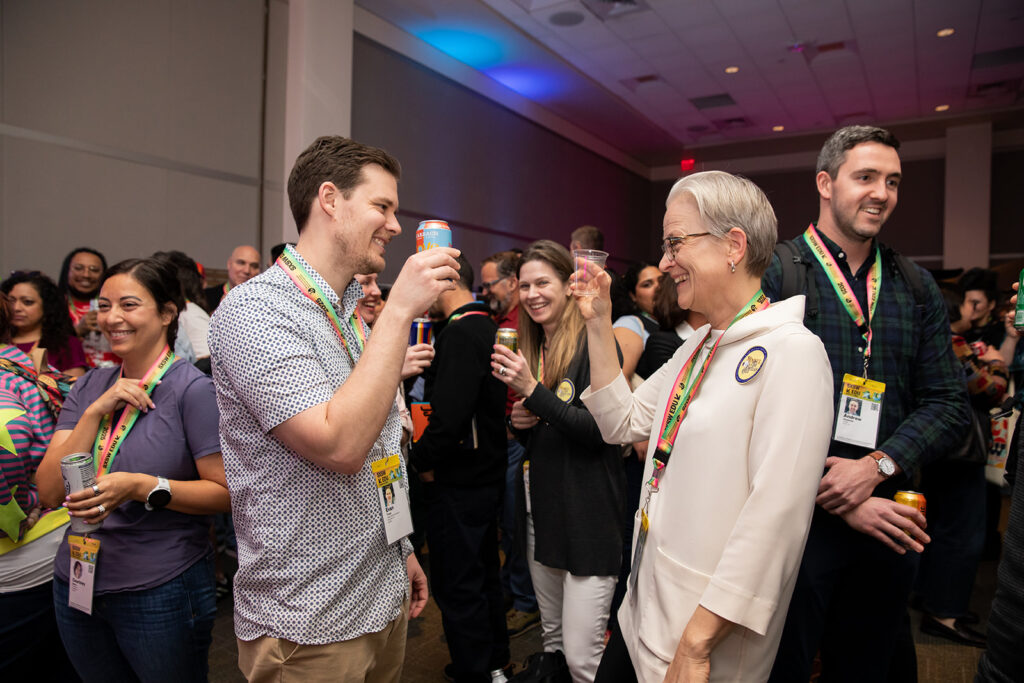
Leaders and Visionaries: Q&As with Partners and Research Fellows
We regularly sit down with organizational leaders to create space for reflection and dig deeper into different aspects of their work, impact, and change theory.
Read our most recent Q&As:
- Liliana Coelho and Lauren Dapena Fraiz from The Maintainers
- Pegah Moradi from Cornell Tech
- Ruchika Joshi from Center for Democracy and Technology
- Kareem Farah from Modern Classrooms Project
Grants Approved as of H1 2025
| Grantee | Interest Area | Total | Term |
| 1Up Coaching | Effective Philanthropy | $100,000.00 | 2025 – 2026 |
| BetaNYC | Infrastructure | $550,000.00 | 2025 – 2027 |
| Biodesign Challenge | Ancillary | $65,000.00 | 2025 – 2026 |
| Birmingham Promise | Ancillary | $500,000.00 | 2025 – 2027 |
| Break Through Tech | Workforce | $250,000.00 | 2025 – 2026 |
| Brown University | Chairman’s Initiative | $10,000.00 | 2025 – 2026 |
| Carnegie Foundation for the Advancement of Teaching | Learning | $1,500,000.00 | 2025 – 2027 |
| Carnegie Hall Corporation | Chairman’s Initiative | $200,000.00 | 2025 – 2026 |
| Center for American Progress | Chairman’s Initiative | $500,000.00 | 2025 – 2026 |
| Center on Rural Innovation | Workforce | $6,000,000.00 | 2025 – 2028 |
| Citizens Committee for New York City, Inc. | Ancillary | $85,000.00 | 2025 – 2026 |
| Cornell Tech | Infrastructure | $8,500,000.00 | 2025 – 2030 |
| CSforAll | Ancillary | $50,000.00 | 2025 – 2026 |
| CUNY | Ancillary | $345,000.00 | 2025 – 2028 |
| Feedback Labs | Effective Philanthropy | $200,000.00 | 2025 – 2026 |
| FWD.us Education Fund | Chairman’s Initiative | $500,000.00 | 2025 – 2026 |
| Harvard Law Center for Labor and a Just Economy | Workforce | $300,000.00 | 2025 – 2027 |
| Hasso Plattner Institute of Design (“Stanford d.school”) | Infrastructure | $4,200,000.00 | 2025 – 2027 |
| Hoff-Barthelson Music School | Chairman’s Initiative | $24,000.00 | 2025 – 2026 |
| ICA Fund | Effective Philanthropy | $250,000.00 | 2025 – 2026 |
| Jobs for the Future (JFF) | Workforce | $500,000.00 | 2025 – 2026 |
| LearnerStudio | Learning | $400,000.00 | 2025 – 2026 |
| MakerUSA | Ancillary | $225,000.00 | 2025 – 2027 |
| Massachusetts Institute of Technology | Chairman’s Initiative | $100,000.00 | 2025 – 2026 |
| National Council of Nonprofits | Effective Philanthropy | $400,000.00 | 2025 – 2027 |
| New Growth Innovation Network (NGIN) | Infrastructure | $300,000.00 | 2025 – 2027 |
| New York Buddhist Church | Chairman’s Initiative | $10,000.00 | 2025 – 2026 |
| Opportunity AI | Ancillary | $50,000.00 | 2025 – 2026 |
| Princeton University | Chairman’s Initiative | $100,000.00 | 2025 – 2026 |
| Read Alliance | Leadership | $15,000.00 | 2025 – 2026 |
| Rebuild by Design at NYU | Ancillary | $250,000.00 | 2025 – 2026 |
| Regional Plan Association (RPA) | Leadership | $125,000.00 | 2025 – 2026 |
| Stanford Center on Philanthropy and Civil Society | Chairman’s Initiative | $250,000.00 | 2025 – 2026 |
| State Educational Technology Directors Association (SETDA) | Learning | $255,000.00 | 2025 – 2028 |
| Student Pathways – Computer Science (formerly CS4ALL:NYC) | Learning | $250,000.00 | 2025 – 2026 |
| Study Group | Leadership | $50,000.00 | 2025 – 2026 |
| The Aspen Institute, Inc. | Leadership | $1,000,000.00 | 2025 – 2027 |
| The Barack Obama Foundation | Leadership | $1,000,000.00 | 2025 – 2026 |
| The Black River Innovation Campus (BRIC) | Leadership | $200,000.00 | 2025 – 2027 |
| University of Washington Tech Policy Lab | Infrastructure | $300,000.00 | 2025 – 2027 |
2025 H1 Totals*
Committed: $29,909,000.00 | Executed: $19,227,300.00
*As of June 30, 2025


